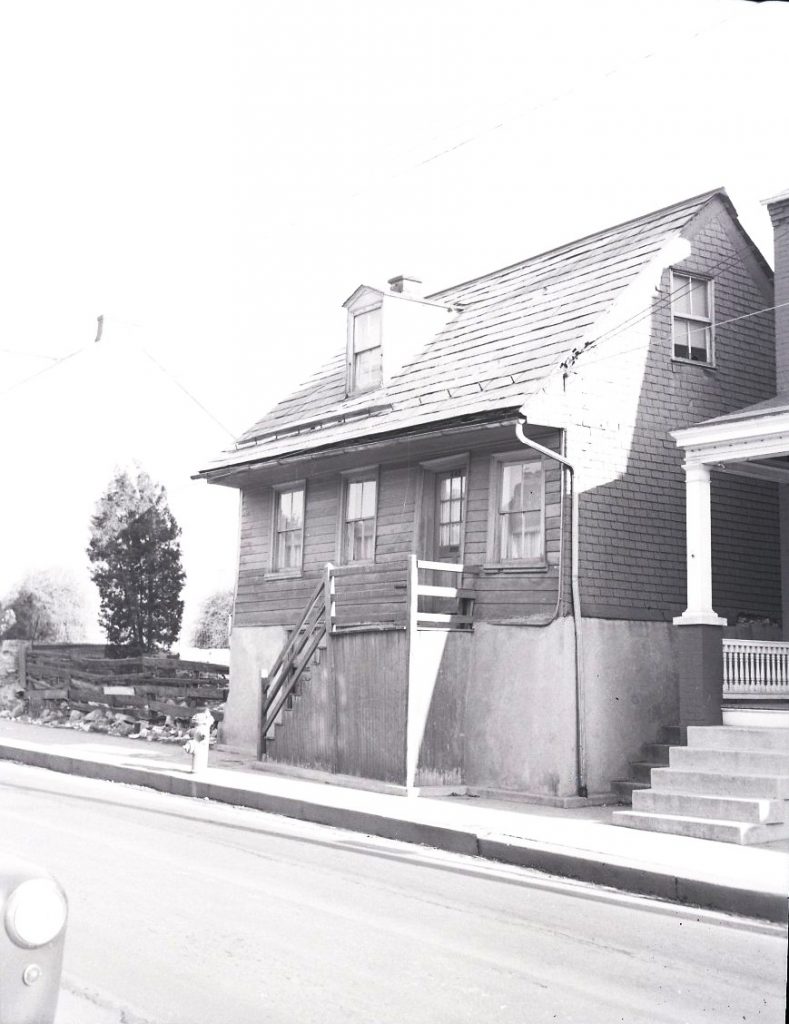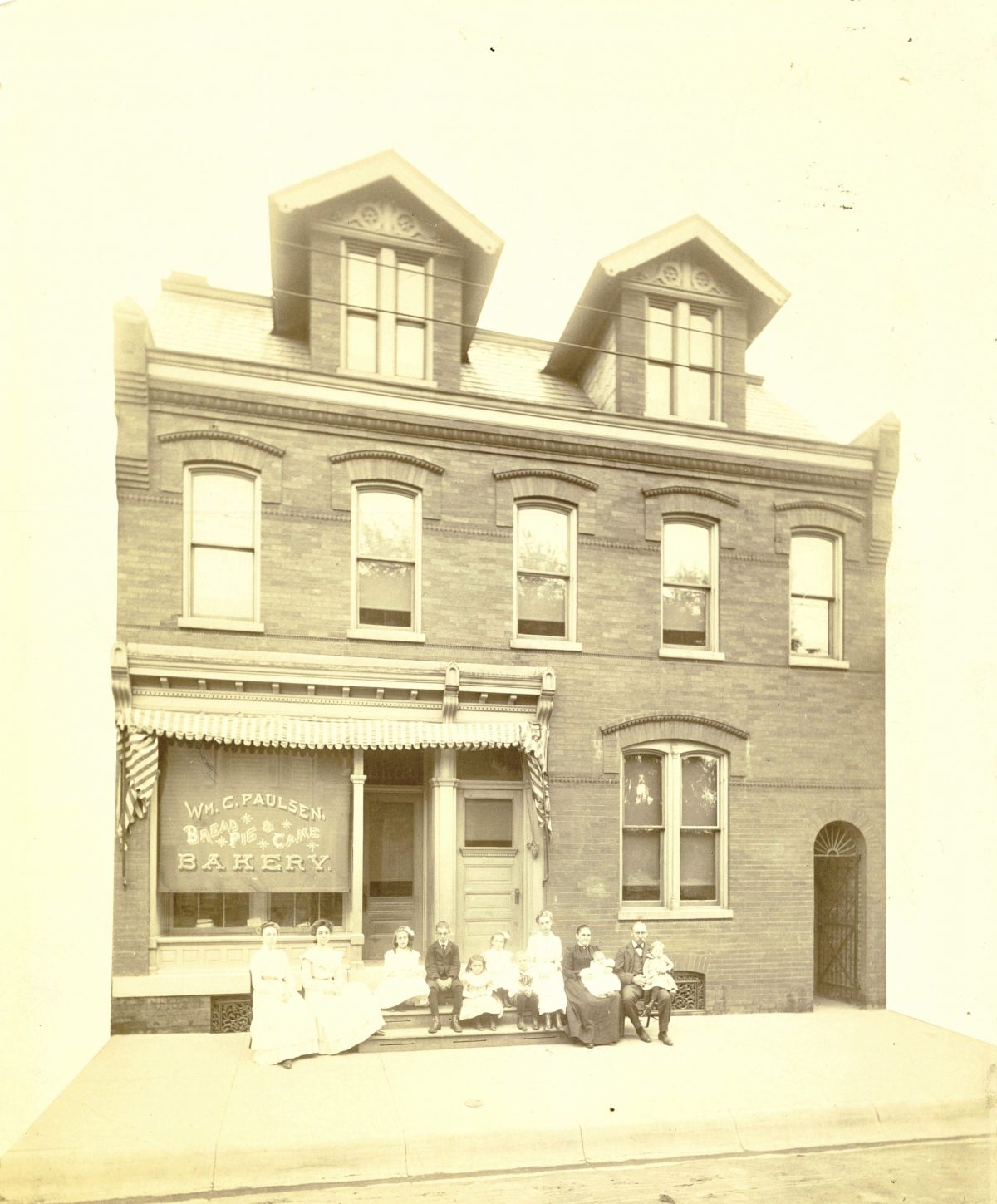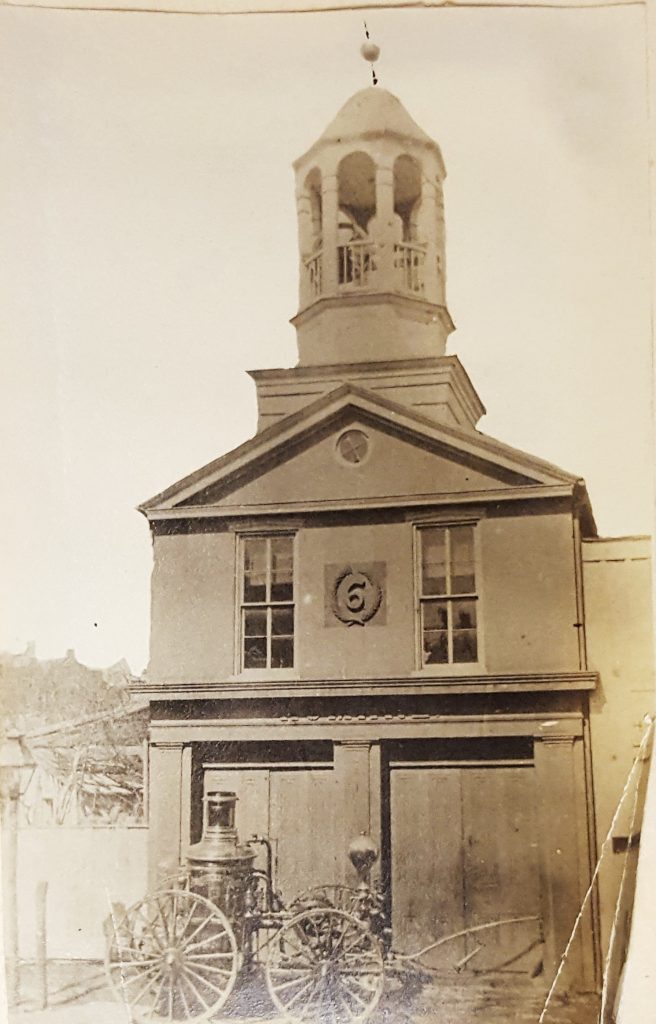Jim Gerhart, May 2019
Tradition has it that Cabbage Hill was named because of the smell from the making of sauerkraut that permeated the air above the Eighth Ward, whose residents were mostly of German descent. But when did the name enter common usage? And was the name intended to be complimentary or derogatory?

The first written reference to Cabbage Hill that I can find (so far) was in the October 11, 1871 edition of the Lancaster Intelligencer, and the subject of the article may provide a clue as to the circumstances under which the name came about. The name, Cabbage Hill, appeared in an article entitled, “RADICAL MEETING IN THE EIGHTH WARD”, which was a lunch meeting that took place at Samuel Erisman’s saloon at the corner of West Strawberry and West Vine Streets on October 11, 1871. The sentence in the article that contains the reference to Cabbage Hill is, “The Radical politicians, scared almost out of their boots, by the outpouring of the Democracy of Cabbage Hill, on Tuesday evening, determined to get up a counter demonstration to undo the damage which had been done to the cause of Reed, plunder and usury.”
The “Radical politicians” who met in Erisman’s saloon were members of a wing of the Republican party that before and during the Civil War, had advocated strongly for the total defeat of the secessionists and the end of slavery, and after the Civil War, had urged harsh punishment for the Confederate states. The “Democracy of Cabbage Hill” was the German population of the Eighth Ward, who were part of a wing of the northern Democratic party that strongly opposed the need for the Civil War and called for a truce and peace with the Confederacy. The Republican party dubbed the northern Democratic wing “Copperheads”, a name meant to disparage them by comparing them to the treacherous poisonous snake. Interestingly, another name for the German Democrats of the Eighth Ward, in an article in Father Abraham from October 23, 1868, was “Sauer Kraut Gorillas”, clearly not a compliment.
The lunch meeting of the Radical Republicans in Erisman’s saloon was apparently an attempt to upstage a very well attended meeting the previous evening of the Democrats of the Eighth Ward. An election was approaching, and the office of Mayor of Lancaster was on the ballot. The Republican Mayor whose tenure was just about to end was William Atlee, and the next Republican candidate for Mayor was George Reed. Both Atlee and Reed were at the lunch meeting at the saloon, trying to drum up votes among the residents of the Eighth Ward. To encourage attendance, a sauerkraut meal and free beer were on the menu. Unfortunately for the Mayor and Mayor-hopeful, the meeting was poorly attended, and somebody forgot to make the sauerkraut, and after a few beers and a speech by the current Mayor that was “a weak defense of his administration”, it was clear that Eighth Ward voters were going to favor the Democratic candidate for Mayor (Frederick Pyfer) in the upcoming election.
So it appears that the name of Cabbage Hill was in common usage by October 1871. Also, we can surmise that the Eighth Ward was probably not called Cabbage Hill before the mid-1850s because it was not until then that the central part of the Eighth Ward began to be populated. My guess is that the name, Cabbage Hill, came into usage sometime in the 1860s, but I have no further evidence to back that up.
As for the circumstances under which the name came into common usage, it is possible that it came about as a result of the political differences accentuated by the Civil War and its aftermath. When considered in the context of another name from the same era, Sauer Kraut Gorillas, the name, Cabbage Hill, seems likely to have been a derogatory label bestowed by the Radical Republicans of Lancaster on the members of their rival party in the German Eighth Ward. I am going to keep my eyes open for additional information on this topic. In the meantime, if anyone knows of an earlier usage of the name, Cabbage Hill, or about the circumstances under which it originated, please get in touch with me at SoWeCommunicate@sowelancaster.org I will update this story with any new information in the next entry for this blog. Let’s see if together we can answer these long-asked questions about the origin of “Cabbage Hill”.


